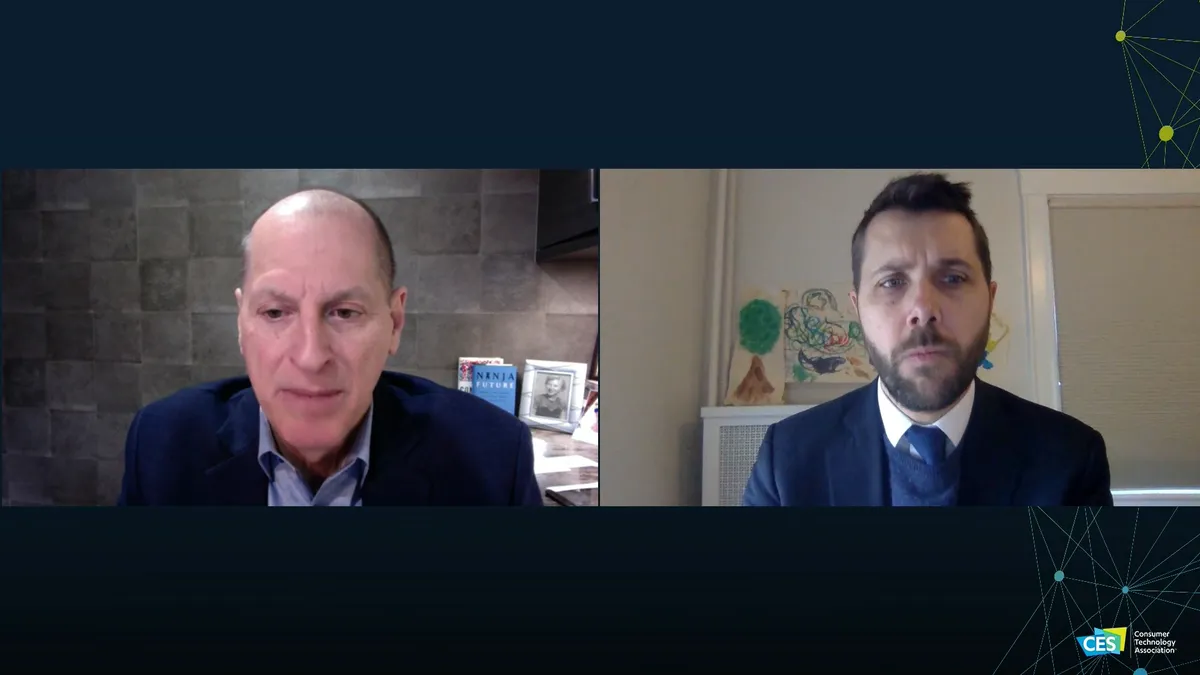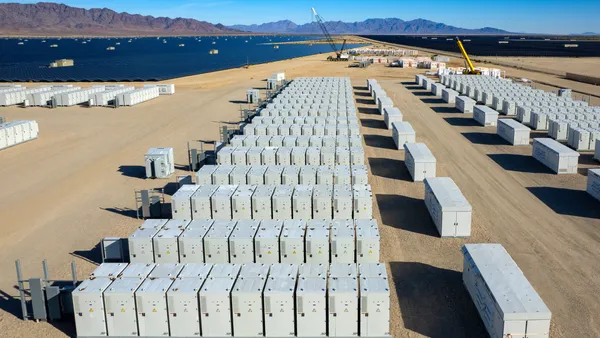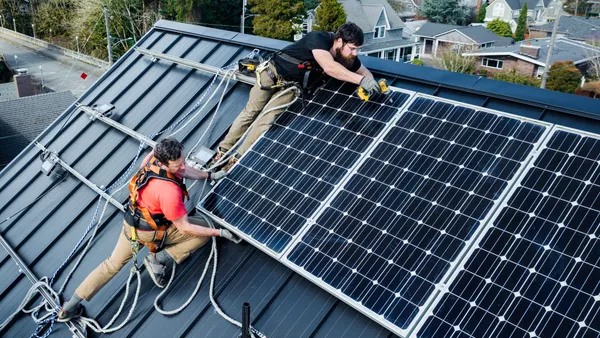Dive Brief:
- In a virtual interview during CES on Tuesday, a top advisor to President-elect Joe Biden reiterated the new administration’s commitment to rejoin the Paris climate accord, but warned the United States has "lost critical time" in the fight against climate change.
- Brian Deese (pictured above, right), director-designate of the National Economic Council (NEC), said in the interview with Consumer Technology Association President Gary Shapiro (above, left) that the incoming administration sees an opportunity to help the U.S. recover from the coronavirus pandemic, and do so in a way that addresses other long-standing issues such as climate change.
- Deese warned of an uphill climb to hit national targets, as the outgoing administration made a costly decision to disengage on the fight against emissions and curbing climate change, leaving the work to cities, states and the private sector over the last few years.
Dive Insight:
Though the U.S. officially left the Paris climate accord in November 2020 under President Trump's leadership, Biden's commitment to rejoin the accord became a hallmark of his presidential campaign as he sought to reengage the federal government in curbing climate change.
Deese said the U.S. has found itself in a weak position in the climate fight, compared to some of its peers worldwide. He said that must change, and while reentering the Paris agreement will be key, that is not the end of the work.
"The president-elect has said that just rejoining is not sufficient," Deese said. "It's not sufficient for where the science says we need to be, and it's not sufficient because we've lost critical time over the last couple of years."
The coronavirus crisis has highlighted the kind of dramatic work needed to bring down emissions. At the start of stay-at-home orders and mass remote work, experts saw dramatic improvements in air quality across the U.S. as thousands of cars were no longer on the road and industrial activity was reduced. An estimate from the Rhodium Group found U.S. greenhouse gas emissions went down more than 10% in 2020, to their lowest levels in at least 30 years.
City leaders in particular see an opportunity to rebuild the post-COVID economy in a way that enhances resiliency and climate-friendly alternatives, while the pandemic has also highlighted racial inequities that exist. Deese said there are opportunities aplenty to rethink how the country functions.
"Whether that's with respect to the climate crisis, and thinking about how we can invest in infrastructure, create jobs but in a way that our economy is more resilient, we're reducing emissions and we are putting ourselves on a trajectory to a low-carbon economy," Deese said. "Or we think about attacking the structural inequities and racial inequities that our country has been plagued with for far too long, as we invest to try to address those issues in the immediate crisis."
Deese said it will also be crucial for governments to partner and engage with the private sector on reducing emissions and make it easier for consumers to choose low-carbon alternatives. One area of significant cooperation has been with automakers, which are increasingly turning to electric vehicles (EVs) in a bid to reduce pollution from the transportation sector.
In a CES keynote address on Tuesday, General Motors Chair and CEO Mary Barra said electrification will be key as the market reaches an "inflection point" where more consumers and governments see the benefits of EVs over traditional vehicles, especially on cost. Deese said it is incumbent to show that environmentally-friendly alternatives are viable.
"One of the ways to [decarbonize the economy] is to provide certain long-term signals so that the allocators of that capital can actually have confidence that it makes more sense to invest in the low-carbon solution, not only because it's more cost efficient today, but it's going to be more cost efficient five or 10 years from now," Deese said.














